Out of Ireland have we come.
Great hatred, little room,
Maimed us at the start.
I carry from my mother’s womb
A fanatic heart.
W.B. Yeats, ‘Remorse for Intemperate Speech’ (1931)
With proportional representation in multi-seat constituencies, Irish elections tend to be colourful affairs. Debate rarely rises above the clamour of claim and counter-claim as candidates seemingly festoon every available lamppost the length and breadth of the country with posters. In rural constituencies especially, local causes tend to trump national concerns, while questions of global import rarely register.
But times are changing as cosmopolitan younger voters gravitate towards parties from beyond the political establishment. Until the 1990s Fianna Fáil (‘soldiers of destiny’), Fine Gael (‘family of the Irish’), and Labour – which historically assumed the role of minor coalition partner to Fine Gael – enjoyed near total domination of Dáil Éireann, the national parliament. Today no single party expects to command an overall majority, and coalitions are the norm.
The ruling Fine Gael party, having spent four years in an unprecedented ‘confidence and supply’ agreement with its old foe Fianna Fáil, called a snap election on January 14th, seemingly hoping to be rewarded for its competent handling of Brexit negotiations, and to avoid losing a no confidence motion over the performance of the Minister for Health Simon Harris.[i]
Unexpectedly, however, a political earthquake is on the cards as an array of left-leaning parties, especially the increasingly popular Sinn Féin (‘ourselves’), the Green Party, Labour, People Before Profit, the Social Democrats, and even an unheralded socially conservative newcomer Aontú (‘consent’), have made social justice the central issue of the campaign.
For the moment opposition to the centre-right mainstream of Fine Gael and Fianna Fáil is coming from the left, responding in particular to an ongoing Housing Crisis. But Ireland is not immune from the wave of identity politics sweeping far-right Populists into power elsewhere.
Another recession might easily trigger far-right Populism within the existing framework, bringing together an unholy trinity, seen elsewhere, of xenophobia – including opposition to E.U. membership – climate change denial and opposition to abortion services.
Who me?
Identities are hotly contested on the island of Ireland. Thus the Fine Gael-led government’s recent proposal to rehabilitate the Royal Irish Constabulary (RIC) – the British Crown’s police force prior to independence in 1921 – brought a veritable Twitter storm of anger and bewilderment.
In its wake, the rousing Wolf Tone 1972 rebel song ‘Come out ye Black and Tans’ topped the iTunes charts in Ireland, and the U.K.,[ii] before being ripped off by Kerry independent candidate Michael Healy-Rae for his election campaign song.
The bizarre decision perhaps explains Fine Gael’s steep decline in support, as revealed in recent opinion polls. Although a wave of violent crime, including the horrifying murder of a Drogheda teenager,[iii] and the story of a homeless man receiving ‘life-changing’ injuries after a tent, with him inside, was forcibly removed by heavy machinery from the side of one of Dublin’s canals,[iv] contributed to widespread unease with the orientation of Irish society under the current administration.
Tonight's Sunday Times Poll
FF 23%;
SF 21%;
FG 19%;
GP 10%;
LP 5%;
SD 5%;
SPBP 5%;
Others 11%;#GE2020 #togh2020 #SinnFéin #FiannaFáil #FineGael pic.twitter.com/WTXSHbpHKw— Mark Moloney (@MarkAgitprop) February 1, 2020
Identity politics vary from country to country, and from epoch to epoch. In the U.S. race has long been a divisive issue. In the U.K. incipient (so-called ‘Little-Englander’) nationalism is the new clarion call, with the shattering of transnational working class identity emphasised by the implosion of the Labour Party in Scotland.
Historic cleavages in Ireland have tended to be religious rather than ethno-linguistic or racial, pitting Catholics against Protestants and Dissenters (or Presbyterians), at least since the failure of the United Irishman project in the 1790s; although, in the South at least, divisions have also recently emerged along familiar liberal versus conservative lines – especially over reproductive rights and marriage equality.
Identity politics tend to shred solidarities based on economic status both within countries and internationally, often involving deference to aristocracy or accumulated wealth. Developing a political movement based on social class, however, can also be problematic, as for example where a person’s ‘bourgeois’ speech or mannerism is stigmatised. The great diversity within any class formation is also easily overlooked.
The success of the Populist far-right in both the U.S. and U.K. has been achieved by combining working class disaffection – including resentment towards the kind of educated middle-class ‘elites’ generally at the helm of socialist parties – with ‘primordial’ racial or national identification.
As with the racism exhibited by poor Irish-Americans against former African-American slaves who migrated North after the U.S. Civil War (1860-65), the lowest income strata is often most resistant to new arrivals, who may be seen, and are often depicted in the media, as competitors for jobs, housing and other government services.
Brexit Effect
Whether, and for how long, Irish politics avoids the gravitational pull of far-right Populism is unclear. Certainly Brexit stoked identity politics in Ireland by amplifying latent anti-English prejudices.
Notably, over the course of protracted negotiations, the Irish media lampooned English nostalgia – emanating from ‘swivel-eyed loons’ – for a bygone, imperial age. The Irish Times leading columnist Fintan O’Toole even boasted that for the first time in history Ireland, with a population of under five million, was now a more powerful State than the U.K.,[v] which has a population of almost seventy million.
Also, in the run-up to the U.K.’s last general election Irish Times columnists poured scorn on the ‘extremism’ of both Boris Johnson’s Conservatives and Jeremy Corbyn’s Labour.[vi] Implicit was the idea that Ireland’s centre-right consensus was eminently preferable, but an unintended consequence may have been to bolster support for a Sinn Féin party pledging a border poll (to bring about a united Ireland) within five years.[vii]
At least Irish nationalism tends to oppose unsavoury outlooks identified with English nationalism, including a xenophobia previously directed against Irish living there. Sinn Féin has also tempered historic anti-E.U. sentiment in the wake of Brexit, perhaps on the basis that ‘my enemies enemy is my friend.’
Moreover, Ireland’s openness to foreign investment, and low corporation taxation, means Steve Bannon – and presumably Donald Trump who owns a golf course and hotel in Doonbeg, County Clare – see little reason to interfere in Irish politics, with U.S. armed service personel permitted to use Shannon Airport as a stopover. But this might change if the rise of the left, especially Sinn Féin, continues unabated.
Arch-Imperialist Mike Pence was today greeting American troops in Shannon Airport
It is a continuing disgrace to the Irish people that American Imperialism should be allowed to use any part of Ireland as a military staging ground
US Out of Shannon Now! #EndImperialism pic.twitter.com/YY2WzAG13r
— Anti Imperialist Action Ireland (@AIAIreland) January 25, 2020
Radical Redistribution
The absence of a legacy of heavy industry in the shape of rust-belt towns denies far-right Populists in Ireland the ‘blue-collar’ support base relied on by Trump, and Tory Brexiteers. On mainland Europe too, far-right Populists have successfully appealed to these working class former supporters of social democratic parties.
Most of what passes for a working class in Ireland, historically, are really petit-bourgeois pastoralists, many of whose sons became publicans, auctioneers and shopkeepers, selling commodities on the international market, and in recent times relying on grant aid from the European Union. These farmers have tended to vote overwhelmingly for one or other of the centre-right parties. But Irish society, and politics, is in a period of significant flux.
The two main centre-right parties are now struggling to retain the support of an aging, and shrinking, livestock farming cohort. That sector is in crisis owing to a slump in beef prices and existential fears around climate chaos and Brexit. Over the course of the past year, supermarkets and processing plants have been blockaded, as a schism grows between better-off dairy farmers and beef farmers, overwhelmingly reliant on subsidies.
Irish farmers blockade Tesco distribution centre https://t.co/KFmEqKiHJs pic.twitter.com/I3gHgvE8S4
— P&J Farming (@PandJFarming) December 11, 2019
Meanwhile, with a population approaching two million that dwarfs the other main urban centres of Cork, Limerick, Waterford and Galway that barely register half a million between them, the capital Dublin is the economic engine of the country. But chronic under-investment in transport infrastructure and social housing has brought spiralling rents[viii] in the capital, affecting the young disproportionately. Therefore, calls for a radical redistribution of wealth, along with action on climate change, are growing louder.
Across the country, the rising cost of living, from property to health and childcare, since recovery from the Economic Crash of 2008 and subsequent EU/IMF bailout is disrupting the centre-right consensus, dominant since the state’s foundation.
Riding high in the polls, Sinn Féin only emerged after the end of the Northern Ireland Troubles in 1999 as a serious force in the South. It has successfully twinned the objective of achieving Irish unity with radical (at least for Ireland) redistribution, pledging to enshrine the right to a home in the Irish Constitution. Its manifesto also promises to pay back €1,500 to renters, a three-year rent freeze, and the largest public housing funding scheme the state has ever seen.[ix]
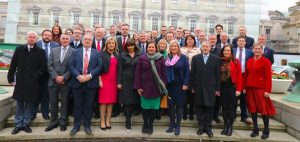
Sinn Féin MPs, MLAs & TDs gather ahead of the Dáil100 event.
On the centre-right Fianna Fáil appears to be regaining pre-eminence, after riding pillion passenger with the minority Fine Gael administration. A formal coalition of these two is the most likely outcome of the election. Nevertheless, for their combined share of the vote to drop significantly below 50% is unprecedented.
As in the last U.K. election, there is a huge divergence between the voting intentions of the young and the old, with the former despairing at the failure of successive administrations to deliver affordable housing, public transport, address the climate and biodiversity emergency or further the cause of Irish unity. Similarly to the U.K. too, the left in Ireland suffers from a factionalism that makes a grand coalition unlikely.
Labour leader Brendan Howlin said he is hopeful of a progressive alliance after the #GE2020. He said there are “very serious barriers” to working with Sinn Féin. He said, “There are fundamental issues of trust about who runs SF.” pic.twitter.com/0KvTLlmbdY
— Petula Martyn (@petulamartyn) January 28, 2020
PD Nation
Over the course of Irish history neither of the two dominant centre-right parties have been over-burdened by ideology, although Fine Gael’s ‘Just Society’-wing endeavoured to forge a social democratic party in the late 1960s.[x] Today, predictably, Fianna Fáil lays claim to more centrist policies with campaign literature proclaiming ‘an Ireland for all.’
. @MichealMartinTD’s priority is to put a roof over every family’s head and ensure timely access to health services. #vmtvbigdebate #GE2020 #AnIrelandForAll pic.twitter.com/khKYMrXuYk
— Fianna Fáil (@fiannafailparty) January 30, 2020
Extended periods in opposition have tended to witness greater emphasis on left-wing causes by both parties. Once a government is formed, however, the ‘realities’ of power, often enunciated by a stubborn legion of Sir Humphreys in the civil service, brings business as usual.
Famously, in 1987 after hounding Fine Gael for its attempts to curb government expenditure in order to reduce the national debt, Fianna Fáil under Charlie Haughey introduced a series of its own swingeing cut backs.
In Ireland, substantive reforms arrive pitifully slowly as manifold Quangos, persistent Nimbyism and entrenched property interests inhibit infrastructural schemes, with the notable exception of motorways in a car-centric country. Tellingly, Dublin is the third worst city in the world for traffic congestion[xi] due to long term failures in delivering public transport, and historic corruption in land rezoning that brought a judicial tribunal lasting for fifteen years due to constant legal challenges.
On the other hand, the Irish economy has grown exponentially since the mid-1990s – reversing long-term emigration trends and attracting signification immigration for the first time – notwithstanding the catastrophic EU/IMF Bailout of 2010.
The Progressive Democrats (popularly referred to as the PDs), a breakaway party from Fianna Fáil that first enjoyed success in the 1987 election, played an important role in laying the foundations for the sustained economic growth and high employment that ensued from the mid-1990s.
Under the leadership of Desmond O’Malley, Mary Harney and Michael McDowell, the party sought to modernise the country, preferring the private sector to assume the role of an often inefficient (and corrupt) State. Despite its Fianna Fáil origins, the PD’s economically liberal agenda appealed to business-minded Fine Gael supporters, despairing at that party’s handling of the economy.
Although the party reached a high water mark in the 1987 election and steadily declined thereafter, before disappearing entirely in 2009, it left an indelible mark on successive governments. This helped created the so-called Celtic Tiger, with Ireland moving ‘closer to Boston than Berlin’, in the words of Mary Harney in 2000.[xii]
The PDs were coalition partner to Fianna Fáil over the course of four administrations (1989-92, 1997-2002, 2002-2007, and 2007-2009), securing Ireland’s position as a low tax haven for foreign multinationals. But the delivery of social and affordable housing was left in the hands of the private sector, which yielded insufficient units throughout the boom years. Moreover, the State, including local authorities, lost its capacity to construct social housing, from which it has been slow to recover.
Not only did PD ideology influence Fianna Fáil – with Minister for Finance (1997-2004) Charlie McCreevy once flirting with membership – but also Fine Gael. Thus, the former leader and Minister for Health (2004-11) Mary Harney is recorded as a confidant of Taoiseach Varadkar, who rose to prominence as a staunch critic of his own party’s social democratic tendencies.[xiii]
Under neo-liberal policies, in particular the low corporation tax regime of 12.5%, Ireland attracted significant foreign direct investment, with global technology giants such as Google, Facebook and Apple establishing European headquarters, along with pharmaceutical firms like Pfizer.
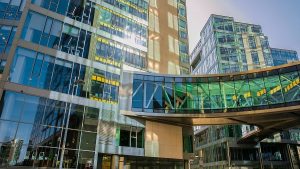
Google HQ, Dublin, Ireland
Low interest rates after joining the euro also contributed to runaway inflation in house prices until the bubble burst after 2008, leading to negative equity that ruined hundreds of thousands. Many workers, especially in the construction sector, were forced to leave Ireland for good. But consistent tax returns from the employees of multinationals in particular, allowed the exchequer finances to recover more rapidly than expected.
The EU/IMF Bailout stabilised property values, and the low taxation regime continued to attract investment into the Irish market, resulting in a bonanza for the surviving indigenous landlords. But the restoration is now working to the detriment of much of the indigenous population, with salaries failing to keep pace with rental costs.[xiv]
New Ireland
Away from the economy, over the course of the last decade, a new species of identity politics took centre stage, dividing upholders of ‘traditional’ Catholic values and ‘modern’ liberals, mainly of a younger vintage. Battles lines were drawn over marriage equality and reproductive rights, with liberal values emerging triumphant in two referendums.
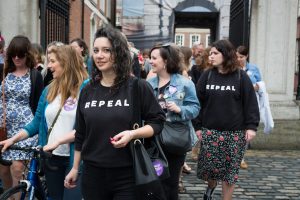
Dublin Castle after 8th Referendum results declared.
Similar to ‘One Nation’ Tories led by David Cameron, Fine Gael under first Enda Kenny and then Leo Varadkar embraced a liberal social agenda, with the gay half-Indian Varadkar’s accession to power a symbol of widespread tolerance, and acceptance of diversity.
Indeed, although the country has experienced an unprecedented surge in immigration since the turn of the millennium, with the number of non-national inhabitants now almost 13% of the total,[xv] there is little sing of a far-right Populist insurgency.
Brexit also provided the Irish government with an opportunity to play a card generally monopolised by more nationalistic political rivals – with Varadkar speculating on the possibility of a united Ireland in his lifetime[xvi] – although the bizarre decision to commemorate the RIC seems to have used up that political capital.
The other side of Fine Gael’s liberal coin has been a conservative reluctance to interfere in the economy, particularly where provision of social housing has been concerned. In part at least, this stems from Leo Varadkar’s apparent aversion to anything hinting at socialism. Thus he complained in a 2018 speech about those who wanted ‘to divide our society into people who live in different areas, with some people paying for everything.’[xvii]
Real Estate Investment Trusts
The scale of an unfolding Housing Crisis, however, of unaffordable rents, homelessness and under-supply is now even attracting criticism from former PD leader, Michael McDowell, who recently wrote:
There is an ideological problem here. The private sector cannot solve the issue. The State must intervene to boost housing supply – social and owner-occupied. Even the term “private sector” is mutating before our eyes. When Reits [real estate investment trusts] buy entire developments to let at high rents – a new phenomenon – that has become the new meaning of the “private sector”.
The difficulty is that the extraordinary scale of public debt – now standing at over €200 billion, and growing – demands consistent economic growth seemingly for evermore as the interest compounds. This has led to deference towards multinationals, including preserving a low, or non-existent, corporation tax regime.[xviii]
In the mean time, indigenous SMEs are struggling,[xix] to compete with the economies of scales of large corporations such as Ikea, which opened a massive 30,000 square foot outlet outside Dublin in 2007.[xx] Around the country out-of-town shopping centres denude cities and towns of independent retailers.
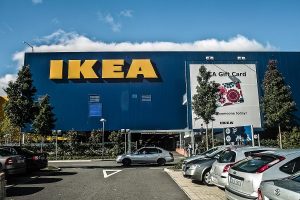
Ikea, Ballymun, Dublin.
Allegiance to the centre-right has previously been secured by an expectation among property owners that mortgages will ultimately yield capital appreciation. This requires consistent economic growth, which without adequate rent control measures has brought the rental inflation driving younger voters into the arms of Sinn Féin, and other left-wing parties.
Younger buyers are still assisted by inter-generational transfers, but this is a single step on a steep ladder. Decades of mortgage repayments await, alongside spiralling childcare and healthcare costs. Although Leo Varadkar claims to represent early rising workers, in fact his government’s laissez faire policies are to the advantage of substantial rentier property owners.
I am a champion for the self-employed & people who get up early in the morning and nobody gets up earlier than the Irish farmer! As long as I am around self employed people will never be taken for granted #IFAAGM
— Leo Varadkar (@LeoVaradkar) January 16, 2018
Moreover, the Fine Gael government’s promise to bring an end to boom and bust economic cycles[xxi] through fiscal probity is pie in the sky, given the susceptibility of an open Irish economy to international currents, in particular an historically volatile U.S. economy.[xxii]
As the 2008 Crash proved, a fairy tale of Irish economic growth-without-end cannot endure – quite aside from ecological constraints – given the inherent volatility of the capitalist system itself. As David Graeber explains: ‘Capitalism is a system that enshrines the gambler as an essential part of its operation, in a way that no other ever has, yet at the same time, capitalism seems to be uniquely incapable of conceiving of its own eternity.’[xxiii]
With steady U.S. economic growth the Irish economy is likely to continue to grow in tandem, as has been the case since the 1990s, but another U.S. recession could see a Populist far-right emerge from out of the long grass in Ireland.
Direct Provision
September’s well-organised protests in the small town of Oughterard in County Galway,[xxiv] along with demonstrations against other proposed Direct Provision accommodation centres for refugee and asylum seekers, indicates a new anti-immigrant mood in rural Ireland. But unless, or until, one of the three main nationalists parties embraces such an outlook it is likely to remain marginal.
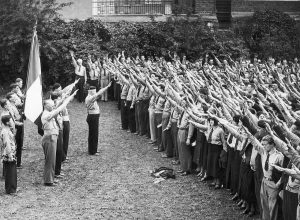
The Irish ‘Blueshirts’
With origins in the ‘Blueshirt’ fascist movement of the 1930s, Fine Gael has occasionally accommodated far-right views throughout its history. One prominent anti-Semite of the 1940s was Oliver J. Flanagan, ironically the late father of the current Minister for Justice Charlie Flanagan, who has promised to introduce anti-hate crime legislation; much to the chagrin of far-right vloggers, such as the journalist-turned-far-right-politician Gemma O’Doherty.
Leo Varadkar has also issued the occasional anti-immigrant dog whistle himself, describing the latter-day Poorhouse of Direct Provision centres as ‘necessary to avoid having asylum seekers using tents,’[xxv] and then identifying particular nationalities with driving a rise in asylum applications.[xxvi]
Varadkar appears to assume that a half-Indian background insulates him from accusations of racism. Thus, in response to People Before Profit’s Bríd Smith’s criticism in the Dáil of Fine Gael’s recent by-election candidate Verona Murphy – who had claimed asylum seekers as young as three years-of-age could be influenced by ISIS – he claimed to know ‘a little more about experiencing racism than perhaps you do.’[xxvii]
Fine Gael has since de-selected the Wexford woman, who is standing as an independent in the forthcoming election. Yet even Danny Healy-Rae (the brother of the aforementioned Michael) was able to expose the hypocrisy of Varadkar’s criticism of Noel Grealish’s inflammatory (and erroneous) Dáil speech on Nigerians sending home remittances.[xxviii]
Fine Gael’s overriding focus, however, is to deliver the elixir of economic growth, rising rents, and well-remunerated jobs, through foreign direct investment, while embracing further integration with the European Union. Anti-immigration rhetoric jeopardises that political and economic formula.
Sinn Féin, Fianna Fáil and Aontú
Given a nationalist background in Northern Irish politics, and historic advocacy of protectionist economic policies outside the E.U., Sinn Féin might seem a likely candidate for adopting a nativist agenda. But the Party has remained faithful to its anti-colonial principles and avoids Populist anti-immigrant messaging. Moreover, many of Sinn Féin’s new cohort of young supporters would be alienated by such an approach.
Under the steadying hand of Micheál Martin, Fianna Fáil stands on the brink of power, either in coalition with Fine Gael or perhaps a combination of other parties. Under his guidance the party is highly unlikely to embrace any form of far-right Populism. But another recession, and a further leftward surge, could tear up that playbook, with a different outlook emerging under new leadership.
Although Martin advocated for a ‘Yes’ vote in the abortion referendum, a majority within the Fianna Fáil parliamentary party opposed repeal of the Eighth Amendment.[xxix] Notwithstanding its crushing defeat in the 2018 referendum, there exists in Ireland a substantial and well-organised anti-abortion movement, prompted by journalists and vloggers,[xxx] which might easily fall in behind a large party such as Fianna Fáil, as occurred with the Brexiter takeover of the Tories in the U.K..
Opposition to abortion services does not necessarily connote adherence to a broad spectrum of far-right ideas, but nor is it a stand-alone issue. Far-right ideologues around the world, including in Ireland, speak of a Great Replacement conspiracy theory wherein the native population is replaced by immigrants. Abortion is considered a means of diminishing the indigenous population.
Last gasp for #Ireland ?
Next week's General Election #GE2020 may determine if the #Irish experiment survives. If recent past not recersed, the moral decay and great replacement will only accelerate.
Godspeed, @VoteJohn2020#Dublin #Cork #Limerickhttps://t.co/yZTtzqaMGX
— 4 Freedoms & Golden Rule (@Matelot1325) February 1, 2020
Undeniably, Peader Tóibín, the leader of the newcomer Aontú represents the views of many in ‘middle’ or ‘forgotten’ Ireland. It will be intriguing to see how this conservative party performs in the forthcoming election.
After splitting from Sinn Féin to launch the party in 2019 Tóibín said:
There is no doubt there is a growing unease and concern among many people in Ireland around the issue of immigration. Our view is very simple, there needs to be sustainable levels of immigration in this country, it needs to be managed. There needs to be some link between the capacity of the country and the numbers of people coming in if there’s not there’s going to be hardship for indigenous and newcomers alike.[xxxi]
Should Aontú achieve electoral success on the issue of immigration in a future election, it would not require a great leap of imagination to envision ‘soul-searching’ in Fianna Fáil that leads to a ‘harder line’ being taken on immigration, and perhaps the embrace of other far-right platforms. Aontú may not survive long, but like PDs they could leave an indelible imprint on Irish politics.
Climate change denial would also appeal to farmers under pressure to reduce emissions from a sector contributing 34% of the national total; as well as a motor car-lobby resistant to carbon taxes and public transport.
Cognitive Dissonance
Thankfully, it requires a degree of cognitive dissonance for the far-right in Ireland to adopt the anti-immigrant rhetoric employed in the U.S. and U.K..
First and foremost, Irish people have emigrated in extraordinary numbers over the course of the past two centuries. Secondly, it can hardly be argued that the country lacks space given the population density was greater in the 1840s than today. Indeed, stemming a decline in rural Ireland’s population is an ongoing challenge.
The furore over Direct Provision is better assessed in terms of a housing crisis in the greater Dublin region. This led to the State securing cheap properties elsewhere; perhaps in an attempt to avoid the accusation that it looks after refugees, while failing to provide accommodation for homeless in the capital.
Finally, anyone appraised of Irish history will be aware that the Irish ‘nation’ is a composite of many waves of migration and conquests. The medieval Book of Invasion (Lebor Gabála Érenn) tells of the land being taken over six times by six different peoples. Thus James Joyce argued: ‘What race or language … can nowadays claim to be pure? No race has less right to make such a boast than the one presently inhabiting Ireland.’[xxxii]

James Joyce: ‘What race or language … can nowadays claim to be pure?’
With the institutions of the Irish state ill-equipped for a significant influx, however, friction with an indigenous population confronting a housing and homelessness crisis, if unchecked, seems inevitable.
Island Nation
Operating as an offshore member of the European Union, located between the two most populous (and powerful!) English-speaking nations brings significant advantages to an Irish State that struggled to hold its people for the first eighty years of independence. The Industrial Development Authority, established in the late 1940s, has played a crucial role in attracting some of the largest companies in the world, providing secure employment for indigenous and foreign workers under a low corporation taxation regime that infuriates many of Ireland’s E.U. partners.
The EU/IMF Bailout, however – through which the State consented to take on the debts owing to unsecured bond holders – is a Faustian Pact mandating economic-growth-without-end to prevent another debt crisis. It has restored the price of property, and rents, to levels seen during the Celtic Tiger era.
A low corporation taxation regime and lack of significant property taxes attracted the interest real estate investment trusts (Reits) that have brought the boom back with a vengeance. This works to the benefit of an ever-shrinking proportion of the population, with the young in particular struggling to live in a capital ill-served by public transport.
Long term, to address the extraordinary wealth tied-up in property meaningful land taxes ought to be introduced. Here, unfortunately, Sinn Féin has evinced reluctance to introduce what might prove unpopular measures in the short term; proposing instead to phase out unpopular local property taxes, and only to tax the earnings of Reits.[xxxiii]
But land taxes[xxxiv] could bring more land into productive use by penalising land-hording, permitting young people to buy homes at more affordable prices from empty-nesting elders, who should be accommodated in smaller, climate-friendly units. A reduction in the cost of agricultural would also encourage the development of alternative, climate-friendly, agriculture.
In the wake of Brexit, Ireland may re-assess its relationship with an E.U. (including the euro) struggling to contain atavistic forces in many countries. In the event of another global recession, the Stability and Growth Pact, requiring deficits to stay within 3%, should not impede the State from responding with Keynesian measures. Otherwise austerity policies could lead to a Populist far-right gaining traction.
The Irish general election of 2020 may prove a watershed, with the duopoly of Fianna Fáil and Fine Gael being knocked off their seemingly unassailable perch, and a more conventional left-right division developing. But the politics of identity may derail ambitious social programmes, with the question of the border unresolved.
A ongoing challenge for the left, and Irish progressives more broadly, is to develop a fair distribution of resources, and sustainability, in a State still bearing the wounds of colonisation.
Featured Image (c) Daniele Idini.
[i] Fiachra Ó Cionnaith, ‘TD calling for no-confidence vote in Simon Harris’, RTÉ, January 9th, 2020, https://www.rte.ie/news/politics/2020/0109/1105248-politics-no-confidence-motion/
[ii] Michael Staines, ‘Come Out Ye Black and Tans tops Charts in the UK and Ireland after RIC controversy’, Newstalk, January 9th, 2020, https://www.newstalk.com/news/wolfe-tones-come-out-black-and-tans-947680
[iii] Paul Reynolds, ‘Drogheda feud reaches new level of barbarity with teenager’s murder’, RTÉ, 18th of January, 2020, https://www.rte.ie/news/crime/2020/0117/1108136-mulready-woods-drogheda/
[iv] Conrad Duncan, ‘‘Absolutely disgusting’: Homeless man suffers ‘life-changing’ injuries after tent cleared away by Dublin city council’, Independent, January 15th, 2020, https://www.independent.co.uk/news/world/europe/homeless-man-life-changing-injuries-dublin-city-council-ireland-varadkar-a9284936.html
[v] Fintan O’Toole, ‘Fintan O’Toole: For the first time since 1171, Ireland is more powerful than Britain’, September 14th, 2019, https://www.irishtimes.com/opinion/fintan-o-toole-for-the-first-time-since-1171-ireland-is-more-powerful-than-britain-1.4014922?mode=sample&auth-failed=1&pw-origin=https%3A%2F%2Fwww.irishtimes.com%2Fopinion%2Ffintan-o-toole-for-the-first-time-since-1171-ireland-is-more-powerful-than-britain-1.4014922
[vi] Finn McRedmond, ‘Finn McRedmond: Like Tories, Corbyn has failed Ireland’, August 24th, 2019, https://www.irishtimes.com/opinion/finn-mcredmond-like-tories-corbyn-has-failed-ireland-1.3995334
[vii] Press Association, ‘Sinn Féin pledges to secure border poll within five years’, Breaking News¸ January 28th, 2020, https://www.breakingnews.ie/ireland/sinn-fein-pledges-to-secure-border-poll-within-five-years-978299.html
[viii] Sorcha Pollak, ‘Dublin rents to rise 17% by 2021 due to lack of supply, report finds’, Irish Times April 8th, 2019, https://www.irishtimes.com/business/economy/dublin-rents-to-rise-17-by-2021-due-to-lack-of-supply-report-finds-1.3853074?mode=sample&auth-failed=1&pw-origin=https%3A%2F%2Fwww.irishtimes.com%2Fbusiness%2Feconomy%2Fdublin-rents-to-rise-17-by-2021-due-to-lack-of-supply-report-finds-1.3853074
[ix] Roisin Agnew, ‘Can Sinn Féin’s young voters finally pull Ireland to the left?’ The Guardian, January 31st, 2020, https://www.theguardian.com/commentisfree/2020/jan/31/sinn-fein-ireland-left-election-ira
[x] Rhona McCord, ‘Book Review, ‘A Just Society for Ireland?’’ The Irish Story, December 16th, 2013, https://www.theirishstory.com/2013/12/16/book-review-a-just-society-for-ireland/#.Xjg8giPLdPY
[xi] Fergal O’Brien, Dublin third worst city for time spent sitting in traffic – survey, RTÉ, February `13th, 2019, https://www.rte.ie/news/dublin/2019/0213/1029375-dublin-traffic-survey/.
[xii] Dan White, ‘Dan White: Harney was right — we are closer to Boston than Berlin’, Herald.ie, May 24th, 2011, https://www.herald.ie/opinion/columnists/dan-white/dan-white-harney-was-right-we-are-closer-to-boston-than-berlin-27980646.html
[xiii] Frank Armstrong, ‘Leo-Liberal’, Cassandra Voices, October 5th, 2019, https://cassandravoices.com/current-affairs/politics/leo-liberal/
[xiv] Sean Murray, ‘Dublin now in top 5 most expensive places to rent in Europe, research finds’, The Journal, March 13th, 2019, https://www.thejournal.ie/dublin-rent-europe-4538856-Mar2019/
[xv] Kevin O’Neill, ‘Irish Population rises by 64,500 bringing it to almost 5m’, Irish Examiner, August 28th, 2019, https://www.irishexaminer.com/breakingnews/ireland/irish-population-rises-by-64500-bringing-it-to-almost-5m-946672.html
[xvi] Untitled, ‘Varadkar says he would like to see a united Ireland in his lifetime’, Irish Times, October 25th, 2018, https://www.irishtimes.com/news/politics/varadkar-says-he-would-like-to-see-a-united-ireland-in-his-lifetime-1.4062543
[xvii] https://www.thejournal.ie/social-housing-private-housing-4255285-Sep2018/
[xviii] Untitled, ‘The Irish Times view on property investment funds: Doing the Reit thing’, October 10th, 2019, https://www.irishtimes.com/opinion/editorial/the-irish-times-view-on-property-investment-funds-doing-the-reit-thing-1.4045602?mode=sample&auth-failed=1&pw-origin=https%3A%2F%2Fwww.irishtimes.com%2Fopinion%2Feditorial%2Fthe-irish-times-view-on-property-investment-funds-doing-the-reit-thing-1.4045602
[xix] Untitled, ‘Bibby: Irish SMEs struggling with rising costs’, Shelf Life, October 15th, 2019, https://www.shelflife.ie/bibby-irish-smes-struggling-with-rising-costs/
[xx] Untitled, ‘Massive IKEA store approved for Dublin’, BreakingNews.ie, June 13th, 2007, https://www.breakingnews.ie/ireland/massive-ikea-store-approved-for-dublin-314846.html
[xxi] Brian Mahon ‘Show Vendors, ‘Election 2020: Fine Gael promises end to ‘boom and bust’’, The Times, January 17th, 2020, https://www.thetimes.co.uk/article/election-2020-fine-gael-promises-end-to-boom-and-bust-9dk70kjdj
[xxii] Dan Mitchell, ‘These Were the 6 Major American Economic Crises of the Last Century’, Time Magazine, July 16, 2015, https://time.com/3957499/american-economic-crises-history/
[xxiii] David Graeber, Debt: The First Five Thousand Years, Melville, London, 2011, p.357
[xxiv] Eileen Magnier, ‘Protest in Oughterard over possible direct provision centre’, RTÉ, September 28th, 2019, https://www.rte.ie/news/connacht/2019/0928/1078800-oughterard-direct-provision/
[xxv] Kevin Doyle, ‘Taoiseach says direct provision ‘better than using tents’’ Irish Independent, October 31st, 2019, https://www.independent.ie/irish-news/taoiseach-says-direct-provision-better-than-using-tents-38647784.html
[xxvi] Untitled, ‘Leo Varadkar says Georgia and Albania driving rise in asylum-seeker numbers’, BreakingNews.ie, November 3rd, 2019, https://www.irishexaminer.com/breakingnews/ireland/leo-varadkar-says-georgia-and-albania-driving-rise-in-asylum-seeker-numbers-961488.html
[xxvii] Pat Leahy, ‘Taoiseach stands by Verona Murphy despite further controversial remarks’, November 19th, 2019, https://www.irishtimes.com/news/politics/taoiseach-stands-by-verona-murphy-despite-further-controversial-remarks-1.4088124?mode=sample&auth-failed=1&pw-origin=https%3A%2F%2Fwww.irishtimes.com%2Fnews%2Fpolitics%2Ftaoiseach-stands-by-verona-murphy-despite-further-controversial-remarks-1.4088124
[xxviii] Vivienne Clarke, ‘Danny Healy-Rae defends Noel Grealish for comments about Nigeria’, Irish Examiner, November 13th, 2019, https://www.irishexaminer.com/breakingnews/ireland/danny-healy-rae-defends-noel-grealish-for-comments-about-nigeria-963665.html
[xxix] Philip Ryan, ‘More than half of Fianna Fáil parliamentary party backing ‘no’ vote in referendum’, Irish Independent, May 3rd, 2018, https://www.independent.ie/irish-news/abortion-referendum/more-than-half-of-fianna-fail-parliamentary-party-backing-no-vote-in-referendum-36870462.html
[xxx] For example: https://www.youtube.com/channel/UCT9D87j5W7PtE7NHOR5DUOQ
[xxxi] Fiach Kelly, ‘Peadar Tóibín’s immigration remarks spark heavy criticism’, Irish Times, April 8th, 2019, https://www.irishtimes.com/news/politics/peadar-t%C3%B3ib%C3%ADn-s-immigration-remarks-spark-heavy-criticism-1.3853813
[xxxii] James Joyce, ‘Ireland: Island of Saints and Sages’, Occasional, Critical, and Political Writing, Oxford University Press, Oxford, p.118.
[xxxiii] Pat Leahy, ‘Sinn Féin unveils plans for dramatic increase in public spending’, Irish Times, January 29th, 2020, https://www.irishtimes.com/news/politics/sinn-f%C3%A9in-unveils-plans-for-dramatic-increase-in-public-spending-1.4154513?mode=sample&auth-failed=1&pw-origin=https%3A%2F%2Fwww.irishtimes.com%2Fnews%2Fpolitics%2Fsinn-f%25C3%25A9in-unveils-plans-for-dramatic-increase-in-public-spending-1.4154513
[xxxiv] Dr Frank Crowley, ‘How a land value tax could solve many economic headaches’, RTÉ Brainstorm, October 18th, 2017, https://www.rte.ie/brainstorm/2017/1017/912913-how-a-land-value-tax-could-solve-many-economic-headaches/.

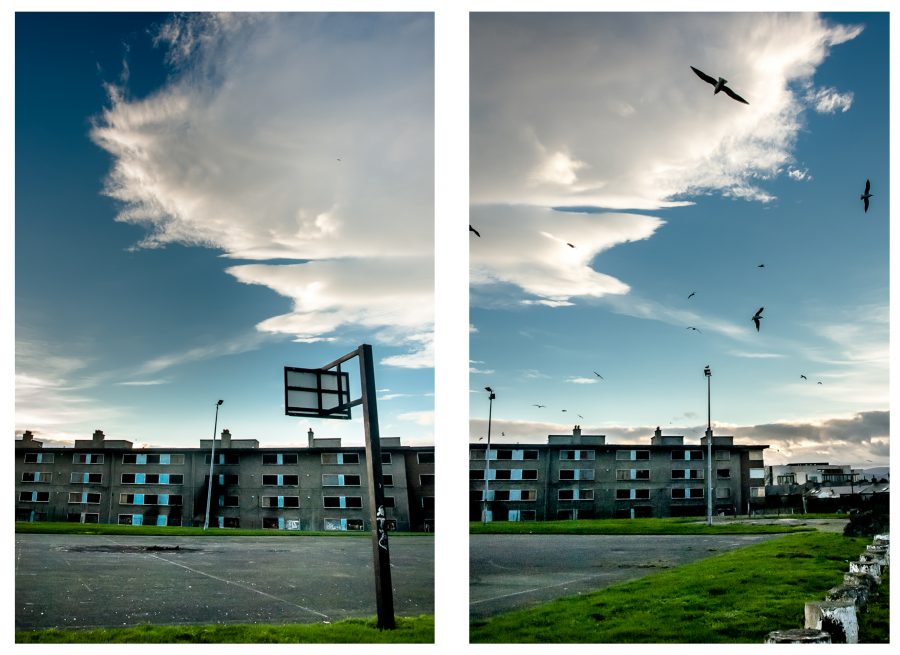
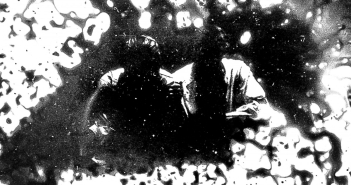
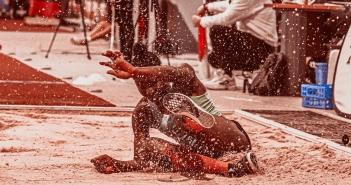
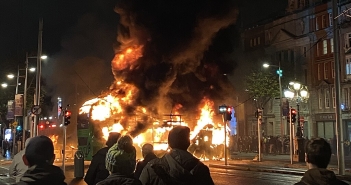
2 Comments
Great article Frank, from someone who finds irish politics utterly befuddling, this is a really interesting and clear read on current and historical positions and influences.
Thanks! Please share if you can.